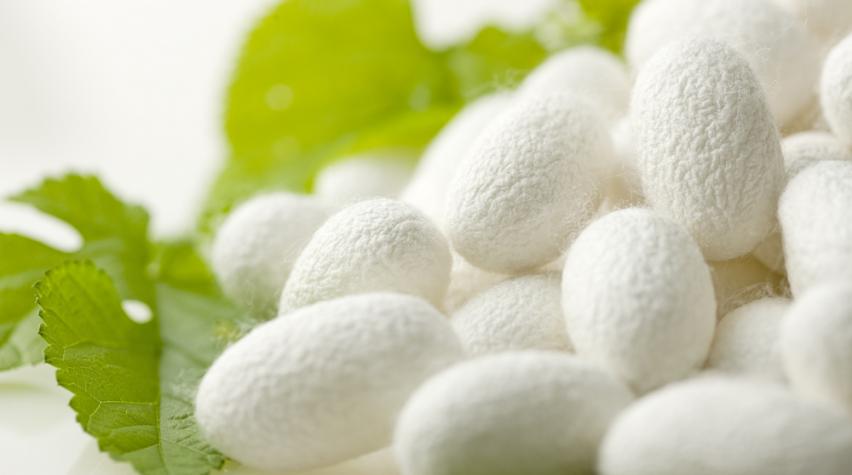
Researchers have created microscopic versions of silkworm cocoons that could be used to protect sensitive molecular materials for use in food, biotechnology, and medicine.
The tiny protective capsules are created using a micro engineering process that is based on the way Bombyx mori silkworms spin their cocoons. The result is a solid and tough shell of silk nano-fibrils that surround and center chamber, with a total size that is more than a thousand times smaller than those created by silkworms.
The micro cocoons are far too small to see or taste so the creators suggest that they could be a perfect way to store and deliver sensitive molecules in various products such as cosmetics, food, or medicine.
Mimicking nature
Silkworms store a fluid that is then spun into a solid. Basing their work on the silkworm, the researchers created a tiny, artificial spinning duct, which copies the natural spinning process to cause the unspun silk to form into a solid. They then worked out how to control the geometry of this self-assembly in order to create microscopic shells.
Making conventional synthetic capsules can be challenging to achieve in an environmentally friendly manner and from biodegradable and biocompatible materials. Silk is not only easier to produce; it is also biodegradable and requires less energy to manufacture.
To learn more about the researchers’ work, see their news release and their published work in Nature Communications.


